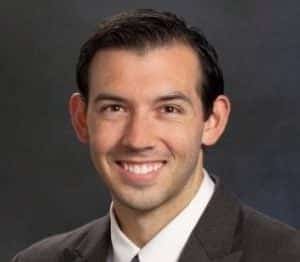
Attorney Harrison Oldham
Breaking News!
On June 3, 2019, in a 9-0 opinion written by Justice Ruth Bader Ginsburg, the Supreme Court of the United States court rejected a claim from Fort Bend County, Texas making it easier for employees to bring claims against employers after they have been routed through the EEOC. The case is Fort Bend County v. Davis, case number 18-525, before the Supreme Court of the United States.
In Davis, Lois M. Davis worked in information technology for Fort Bend County. In 2010, she informed Fort Bend’s human resources department that the director of information technology was sexually harassing her. Following an investigation by Fort Bend, the director resigned. After the director resigned, Davis alleges her supervisor began retaliating against her for reporting the sexual harassment.
In response, Davis filed an EEOC charge alleging that she had been retaliated against for complaining of harassment against Fort Bend County. While her EEOC charge was pending, Davis was told to report to work on an upcoming Sunday. Davis informed her supervisor that she had a commitment at church that Sunday, and she offered to arrange for another employee to replace her at work. Davis’ supervisor responded that if Davis did not show up for the Sunday work, she would be subject to termination. Davis went to church, not work, that Sunday. Fort Bend fired her in response.
Ms. Davis’ charge with the EEOC did not originally assert religious discrimination. Individuals who have submitted charges with the EEOC are allowed to amend their charges. Davis attempted to amend her charge by handwriting “religion” on a form called an “intake questionnaire,” but she did not amend the formal charge document. Upon receiving a right-to-sue letter from the EEOC, Davis commenced suit in Federal District Court, alleging discrimination on account of religion and retaliation for reporting sexual harassment.
Fort Bend moved for summary judgment on the substantive allegations, seeking a dismissal of those claims. Fort Bend did not, however, address the fact that Davis failed to raise the alleged religious discrimination with the EEOC. The Fifth Circuit affirmed as to her harassment claims but reversed on her religious based discrimination claim. On remand back to the district court, Fort Bend, years into litigation, asserted for the first time that the district court lacked jurisdiction to adjudicate Davis’ religion-based discrimination claim because she had not stated such a claim in her EEOC charge.
The resulting opinions focused on the technical question of whether filing a charge with the EEOC was a procedural prerequisite or a jurisdictional obligation. The appeals court concluded that filing a charge is not jurisdictional but a procedural prerequisite to filing a lawsuit. The Supreme Court agreed, meaning that despite the fact that Ms. Davis did not state a claim of religious-based discrimination with the EEOC, Ms. Davis will now have the opportunity to move her claim through the Texas courts.
While this might sound like a technical matter, the takeaway for employers is much simpler. First, employers must carefully inspect claims and documentation with the EEOC, Texas Workforce Commission, or similar agencies. Should a claim move forward to litigation, employers cannot wait to raise failure to exhaust administrative remedies. Employers should plead this as an affirmative defense and move for dismissal of the case at the first opportunity, rather than waiting until some later stage of the litigation.
The decision affirming the Fifth Circuit’s ruling settles a deep circuit split on the issue. Eight circuit courts had ruled that pre-suit claim exhaustion is just an element of making a discrimination claim under Title VII of the 1964 Civil Rights Act, while three said it’s a jurisdictional obligation.
 About Harrison Oldham
About Harrison Oldham
Harrison grew up in Mansfield, Texas. He attended Texas A&M University for his bachelor’s degree, where he met his wonderful wife, Kelsey. After graduating magna cum laude from Texas A&M, he attended SMU Dedman School of Law, graduating with honors in 2012. Today, Harrison and his wife live in Dallas, Texas with their son, Teddy.
Since graduating from SMU Law, Harrison has worked exclusively in the field of business law. He has spent time in private practice and in-house, working with clients of every size; from single person startups to Fortune 250 companies. Today his practice focuses on serving the diverse needs of businesses and individuals throughout Texas.
You can learn more about him by visiting his website, at: http://